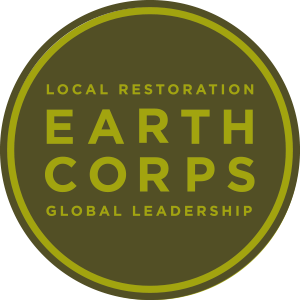ALUMNI BULLETIN
Check out these exciting updates and opportunities from your fellow alumni:
- Quena Batres ’14 featured in Seattle Times
Quena recently helped found Trail Mixed Collective, a group that aims to promote and increase the numbers of women of color in outdoor sports. In 2022, Quena was awarded a Golden Tennis Shoe Award for her work in increasing access to outdoor sports for women of color! - Ravi Prasad ’14 to launch new global recovery initiative
Ravi is helping launch a new project called the Global Green Recovery Cooperative (GGRC) that seeks to help economies recover from the impacts of COVID-19 in an environmentally-conscious way. - Ebony Welborn ’20 and Savannah Smith ’20 team up to launch Sea Potential
After completing their EarthCorps program, the two alums co-founded Sea Potential, an organization dedicated to cultivating a full cycle of BIPOC representation in maritime. - Rinzin Lama ’14 featured in Time Magazine and receives prestigious Rolex Award
Rinzin is a 2021 Rolex Awards laureate for his work in promoting local initiatives for biodiversity conservation in Nepal’s Trans-Himalaya. In 2022, he was featured in Time Magazine as a Next Generation Leader.
If you have something exciting to share with us, email alumni@earthcorps.org with your updates!
ALUMNI SPOTLIGHTS
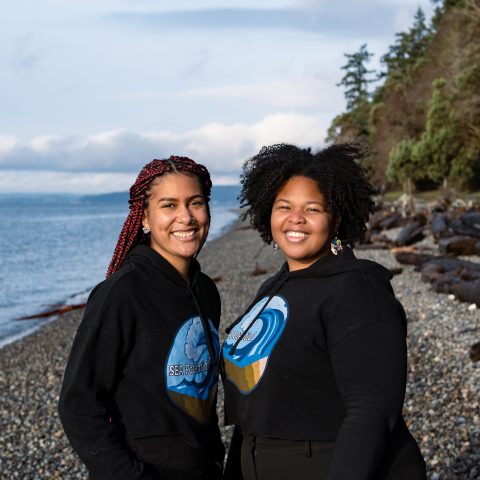
Ebony and Savannah met as volunteer specialists at EarthCorps in 2020. After completing the program, they founded Sea Potential, an organization dedicated to cultivating a full cycle of BIPOC representation in maritime. They carry out this mission by focusing on youth engagement and corporate advancement.
Sea Potential helps youth foster heart-based connections to water by acknowledging individual and generational trauma, incorporating tools for healing, creating more opportunities for positive experiences around water in the community, and doing maritime career exploration programs. Simultaneously, they promote representation over assimilation within the maritime industry through their consulting work.
“If it weren’t for EarthCorps, we would have never met! We quickly connected with one another and were able to bond over our similar experiences as Black women in marine science, despite being from opposite ends of the country. We were also able to build lasting relationships with others in the EarthCorps community. These relationships have been instrumental to our growth both as individuals and as a company.”
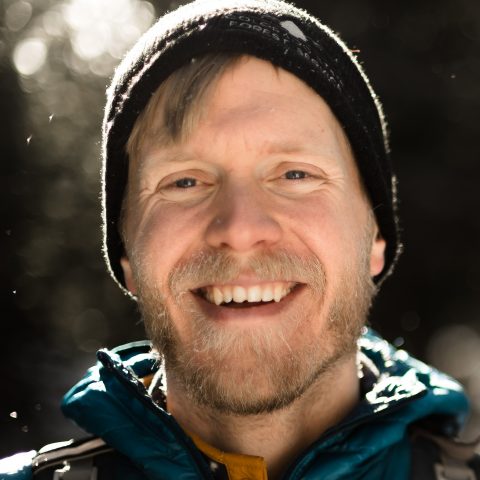
Eric is currently the Data Applications Coordinator for the Rangeland Analysis Platform. The experiences and connections he made as a Crew Member at EarthCorps in 2014 have played a pivotal role in guiding his career going forward. Following EarthCorps, Eric joined the Great Basin Institute where he served as an Ecological Monitoring Field Lead and then as a Geospatial Data Specialist. In the latter position, he was inspired to discover the significant role that GIS and remote sensing plays in large landscape conservation. He went on to receive his M.S. from Colorado State University in Ecology, where he focused on remote sensing and ecological modeling. Leadership skills that he developed at EarthCorps have helped him to lead research projects for NASA DEVELOP and to serve on academic committees.
In his current role, Eric develops tools and provides training to help federal and local partners to use big datasets to tackle the biggest threats currently facing grassland and shrubland ecosystems. Following his graduate program, he has stayed in Fort Collins, Colorado where he spends as much time as he can in the mountains hiking and cycling. Read more about Eric on our blog.
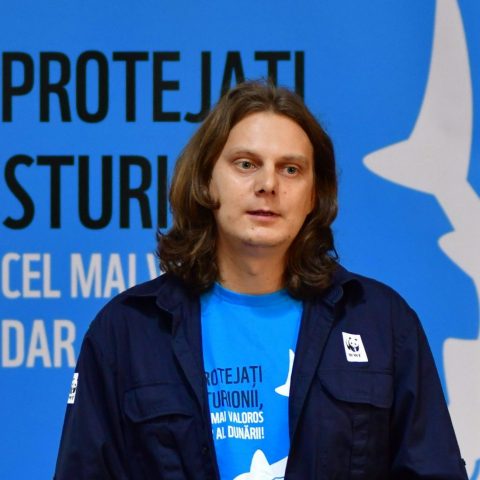
George has been working in sturgeon conservation in his home country of Romania for almost a decade. His projects focus on sturgeon fishing communities along the Danube and Danube Delta by working to restore trust and communication between these communities and authorities. His work also includes finding alternative sources of income for communities impacted by the 2011 ban on sturgeon fishing.
George works with authorities such as the Romanian Police, Romanian Border Police, the National Agency for Fishing and Aquaculture, and the Danube Delta Biosphere Reserve Authority in order to increase their capacity to fight against illegal fishing of sturgeons by building training programs and hosting national and regional workshops to exchange ideas and establish cooperation. George’s team also works together when new fishing and sturgeon protection laws are proposed and are additionally piloting a program that uses modern surveillance techniques such as drones and trap cameras.
George’s work also focuses on wildlife crime, where his team reaches prosecutors and judges. There is no specific training on wildlife crime in these sectors, and the sanction levels for wildlife crime cases are very low when the cases reach the Court. George’s team develops materials, workshops, and online platforms to address these issues.
Thanks to his juridical background and master’s degree in Intern and International Law, George is also helping his colleagues on juridical issues related to ecological restoration of Danube flood plain, such as land ownership, land use, and opportunities to have ecological restoration work done.
George also volunteered at the Waste Management Information and Education Center, where he implemented a small-scale restoration project based on his EarthCorps experience. He presented ecological restoration techniques to pupils from Tulcea schools and, within the WWF, empowered other candidates to apply for a position within this organization.
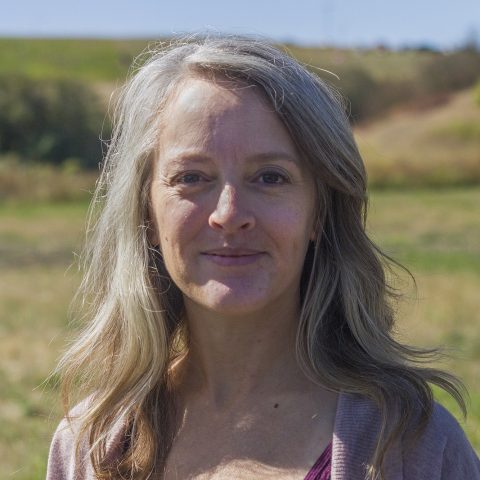
Dr. Jenifer McIntyre is an assistant professor of aquatic toxicology at the Washington State University’s School of the Environment. She is passionate about science that effects change.
Jenifer’s B.Sc. (1997) in environmental biology at Queen’s University led to the ban of a pulp mill effluent used as a road dust suppressant. Following her undergraduate program, Jenifer joined EarthCorps for the 1998 program year. This experience helped Jenifer understand that she wanted to go to graduate school to design experiments that could be used to quantify impacts intended to restore our natural environment.
Jenifer’s M.S. (2004) from the University of Washington on contaminant bioaccumulation led the Washington State Department of Health to issue a fish consumption advisory for Lake Washington. Her Ph.D. (2010) research at UW on olfactory neurotoxicity of copper in coho salmon helped pass legislation in Washington and California that phases out metals in brake pads.
Dr. McIntyre currently focuses on the ecotoxicology of urban stormwater runoff and the biological effectiveness of green stormwater infrastructure.
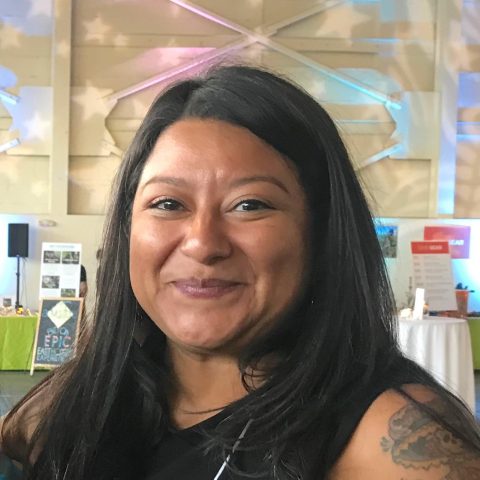
Lylianna (she/her/ella) is the Climate Justice Director at the City of Seattle’s Office of Sustainability & Environment. In her role as Climate Justice Director, Lylianna is responsible for collaborating across city departments and in partnership with community and external stakeholders to develop and action climate justice strategies for Seattle through the Green New Deal and the Equity & Environment Initiative. She joined the City of Seattle in 2019 after serving as lead staff on environment/climate policy and outreach for U.S Congresswoman Pramila Jayapal.
Prior to transitioning to public service in government, Lylianna spent some time as a restoration ecologist, building backcountry trails, and traveling the country facilitating leadership development workshops for environmental & social change leaders. Lylianna is a co-creator of the Growing Old Project, a podcast that explores what Seattle could look like in the next 50 years to be a place where both humans and trees grow old together. She has a B.A in English from Winona State University, a certificate in Non-Profit Management from Georgetown University & a certificate in Wetland Science & Management from the University of Washington.
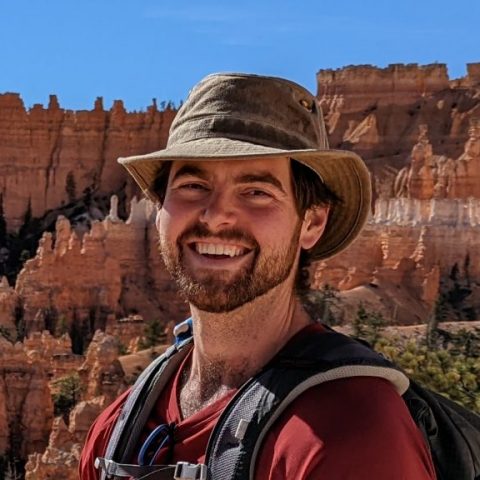
Mike grew up near Ann Arbor, Michigan, where he studied wildlife conservation and ecology in college. He currently works as a Field Supervisor with Arizona Conservation Corps managing projects and mentoring crews throughout Northern Arizona.
Mike loves the balance of planning complex restoration projects and then using them to help crews develop lifelong leadership skills; concepts he was introduced to as a Habitat Restoration Specialist at EarthCorps. Restoration certainly looks a little different in Arizona than the Puget Sound region. Mike has enjoyed managing chainsaw projects, leading backcountry crosscut crews, and organizing trail work in places like the Grand Canyon. When he isn’t playing with chainsaws, he is also on the Green Team helping with AZCC’s first Green House Gas Audit and identifying sustainable business practices for the organization.
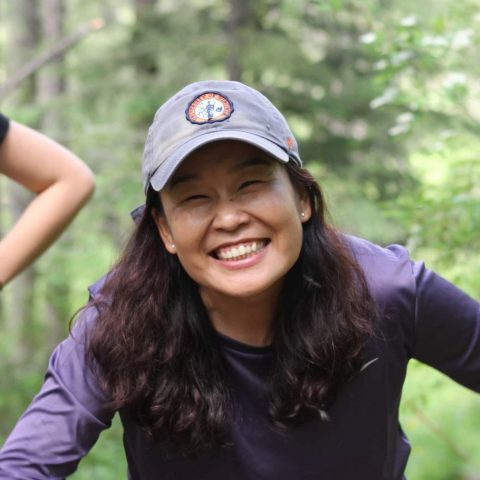
Puje Lkhagvasuren is 2011 International alumni from Mongolia. After completing her EarthCorps journey, Puje returned to Mongolia to work as an environmental and compliance specialist before aiding a government-initiated hydropower plant proposal in the Eg-Selenge region of Mongolia. Soon after, Puje received an Australian government scholarship to pursue her Master’s in Environmental Management at the University of Queensland (UQ). At UQ, her main focus was on climate change and conservation, and she contributed to two research papers that got published in well-recognized peer reviewed journals.
After returning from UQ, Puje worked at conservation non-profits such as the Nature Conservancy and Mongol Ecology Center, where most of her work involved getting local communities, including herders and youth, actively engaged in conservation efforts. She currently works as an Environmental and Social Safeguards Specialist at the World Bank financed Livestock Commercialization Project (LCP) in Mongolia.
While her day to day activities greatly focus on ensuring project-financed activities are both environmentally and socially sound, the Livestock Commercialization project itself aims to contribute to environmental protection by encouraging herders to have fewer numbers of quality livestock as the high number of livestock in Mongolia is already taking a toll on its pasture and environment.
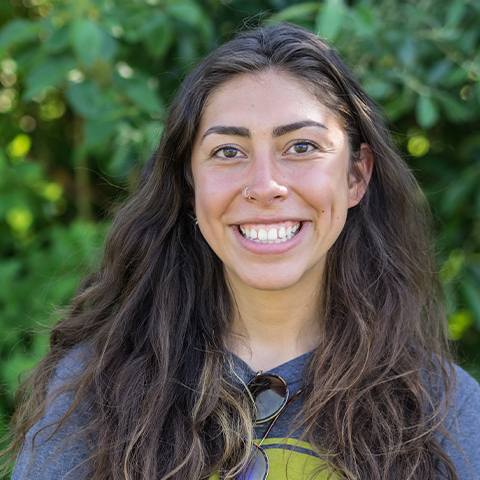
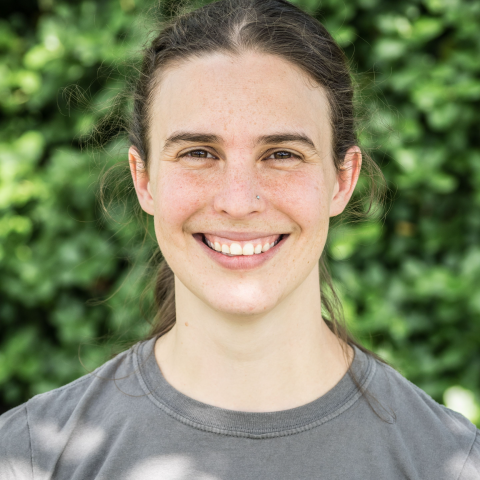
Rahel is a 2014 alumna turned full-time EarthCorps staff member! She has gotten the chance to wear a few different hats at the organization, first as a recruiter, then coordinator and manager for the crews program. In 2022 Rahel will step into the role of Education Manager, where she’ll focus on deepening and implementing EarthCorps’ educational program for corps members.
Being a corps member connected Rahel to the Pacific Northwest in ways she hadn’t anticipated. She developed an appreciation for the different and creative ways that communities in this area are stewarding the lands they live on and strengthening their communities at the same time. Working at EarthCorps has helped Rahel deepen her understanding of the need for restoration of the land but also of our relationships with one another. And each day, we get to try to do that a bit more.
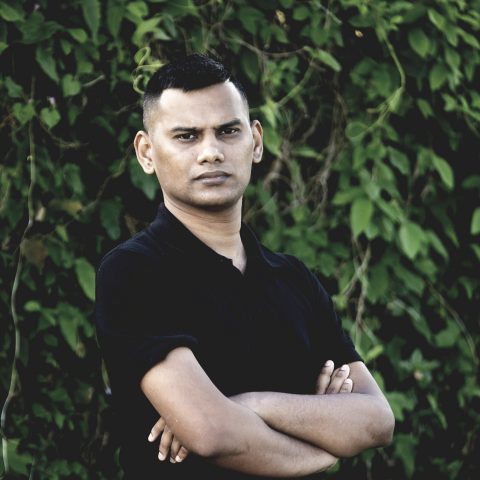
Hailing from Fiji, Ravi Prasad works with the Pacific Office of the United Nations Development Programme as the Monitoring and Reporting Specialist for Resilience and Sustainable Development. Ravi’s career in the environmental sector has taken him across the globe, having served as an International Climate Fellow at Alexander von Humboldt Foundation in Germany before receiving an MPhil in Conservation Leadership from the University of Cambridge in the UK. Prior to joining the UNDP, Ravi worked with the World Mosquito Program, based out of Australia, to support ecosystem-based management of mosquito-borne viruses in Oceania, including Dengue, Zika, and Chikungunya. Dedicated to the idea that the global pandemic presents an opportunity for the environment, Ravi also helps to lead the development of a new Global Green Recovery Collaborative. A proud EarthCorps alum, Ravi was an International Corps Member in 2014.
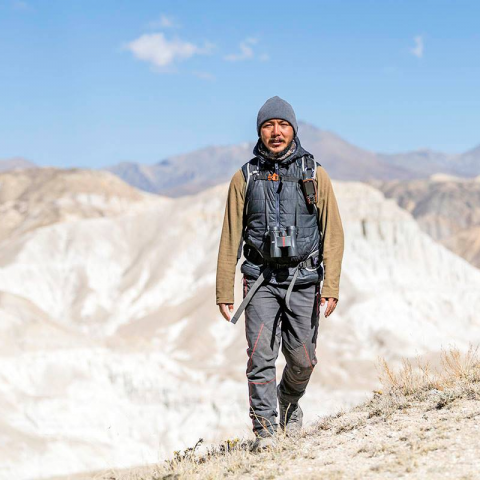
Rinzin is a conservation biologist whose research focuses on big cats and human interaction. In 2021, he received a Rolex Award for his work in community-based conservation. In 2022, he was featured in Time Magazine as a Next Generation Leader.
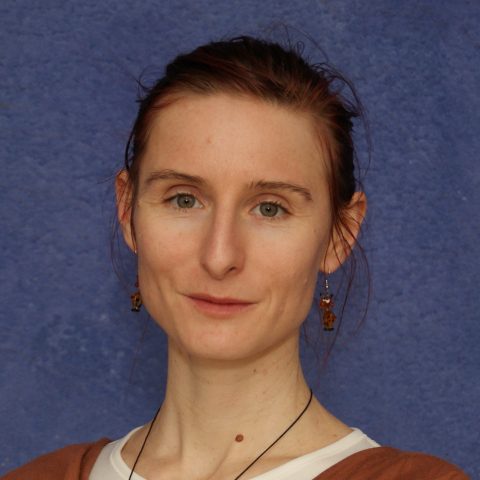
Vika comes from Slovakia where she was involved in a local environmental NGO since high school, focusing on topics of environmental education, citizen science (e.g. stream condition monitoring) and restoration of rural/agricultural landscape (esp. planting).
She joined EarthCorps in 2008 and then did her Masters in Environmental Science in Prague (Czech Republic). She then received her PhD in Applied Ecology in Canberra (Australia), and volunteered in nature conservation projects in Spain and Peru. Vika worked as a national contact point on biodiversity in the Ministry for Environment of Slovakia. Since 2017, she has been with Eurostat, the statistical office of the EU, working in environmental statistics and ecosystem accounting.
